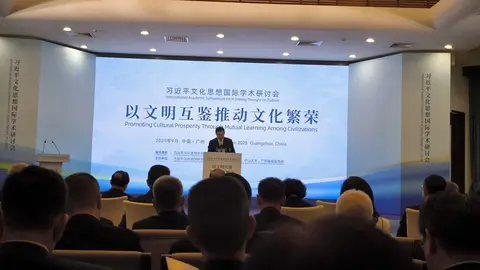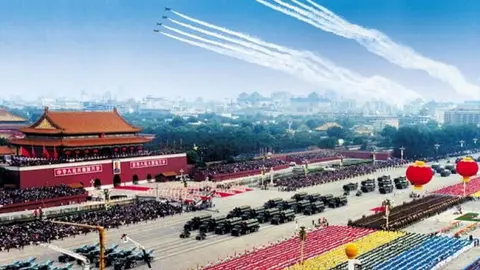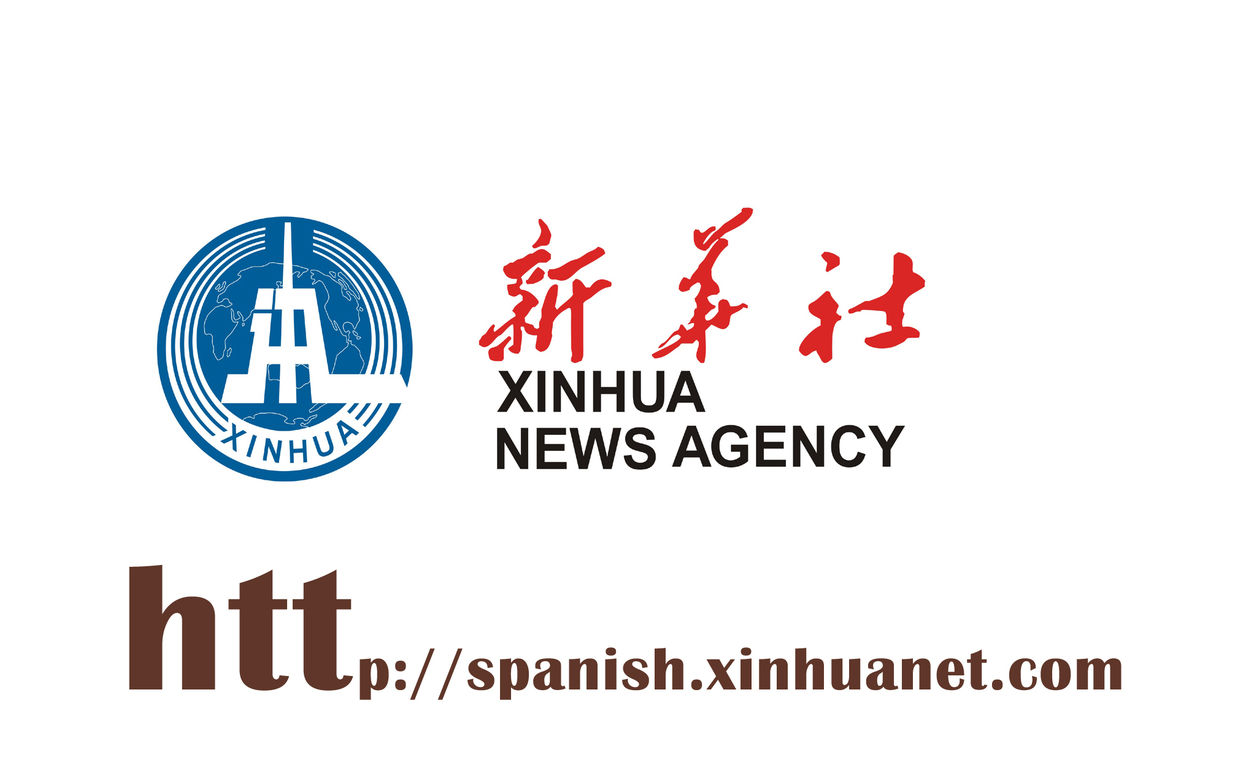Asistimos en las últimas semanas a una nueva vuelta de tuerca en la intensificación de las acusaciones contra China por parte de la Administración Trump. Conforme avanza la cuenta atrás hacia las elecciones presidenciales de noviembre y las encuestas sugieren un serio varapalo por su pésima gestión en diferentes frentes, el nerviosismo en la Casa Blanca apunta su dedo acusador contra Beijing con el abierto propósito de desviar la atención.
Los gravísimos errores cometidos a la hora de afrontar la Covid-19, acercándose a la frontera de los 5 millones de contagios y superando ya los 150.000 muertos, con cuantiosos efectos igualmente en la economía y en el conjunto de la sociedad, están pasando factura al gobierno estadounidense, que ignoró tanto el consejo de sus expertos como las advertencias de la OMS, China y otros países. El mejor ejemplo de ello es la soberbia y altanería expresada por el propio Trump en su irresponsable negativa a usar mascarillas como mecanismo efectivo para evitar la propagación de la enfermedad. Finalmente, Trump cedió y de despreciar su uso pasó a cualificarlo de “patriótico”. Pero el daño ya estaba hecho.
Lo que empezó como una estrategia para reducir el déficit comercial con Beijing, que debía ser la punta de lanza para el relanzamiento económico de EEUU, ha naufragado estrepitosamente. Con el paso del tiempo, la combinación de confrontación e incompetencia ofrecen un balance desastroso para la Administración Trump. ¿Puede responsabilizarse a China de ello? En este tiempo, la posición de China ha sido siempre apaciguadora y reactiva, afrontando con mesura las invectivas de Washington que, por el momento, no han dado el resultado esperado. Sin duda, los intentos de afectar el desarrollo de China, la viabilidad de sus empresas tecnológicas, su influencia internacional, etc., se ven condicionados por las iniciativas desestabilizadoras de la Casa Blanca, pero los impactos, a día de hoy en general bajo control, tienen también un curso de retorno, como si de un boomerang se tratara.
Mientras tanto, en el frente interno, a Trump se le acumulan los problemas. A la pandemia y sus efectos se sumó el resurgir del incómodo racismo estructural y graves problemas de orden público; pero igualmente, en el frente exterior, los reproches a socios y a aliados y las incoherencias de su diplomacia, nutren el desapego de las capitales más responsables en Europa, tomando distancia de sus propuestas más polémicas, entre ellas el llamamiento a desatar una nueva guerra fría contra China como anunció el secretario de Estado Mike Pompeo.
Por otra parte, no deja de provocar hilaridad que Trump y su gobierno presenten las manifestaciones y revueltas sociales que comenzaron con la muerte del afroamericano George Floyd a manos de la policía el 25 de mayo pasado, como una guerra. Hace pocos días el presidente afirmó que la violencia en Chicago “es peor que en Afganistán”.
Cargando tintas a diestro y siniestro contra China y el PCCh, los republicanos confían en revertir las encuestas y ganar las elecciones. Solo les interesa hablar de China. En su discurso del pasado 23 de julio, el ex director de la CIA Pompeo expresó su frustración al constatar que China, contrariamente a lo que habían imaginado, no quería imitar a EEUU sino seguir su propio camino. De la negativa era responsable el Partido Comunista, señalado como el destinatario de un nuevo conjunto de políticas que aspiran a reescribir lo que tildó de “desequilibrios” auspiciando incluso un cambio sistémico.
Que China sea objeto de atención por republicanos y demócratas en los procesos electorales de EEUU se ha convertido ya en una tradición. Sin embargo, la más que demostrada irresponsabilidad de la Administración Trump obliga a la comunidad internacional a estar vigilantes contra cualquier despropósito que pueda alentar con tal de asegurarse una inmerecida y cuestionada victoria en los comicios de noviembre. El temor a un fraude, argumento con el que sondeó un aplazamiento de dichas elecciones, no radicaría en el voto por el correo sino en sus artimañas para desviar la atención del electorado. Y China es su blanco predilecto.
Cabe señalar también que en las últimas semanas, ha aumentado la preocupación sobre que Trump no abandone el poder si pierde las elecciones en noviembre, bien sea cuestionando el sistema electoral y alegando fraude; vinculando el retraso a que el país se encuentra en un estado de caos; e inclusive imponiendo la Ley Marcial, con la colaboración del fiscal general del Estado, William Barr. Hace dos meses la idea era desechada, ahora es un temor fundado. Algunos huecos en el sistema institucional ante la eventualidad de que un presidente no acepte el principio de transmisión pacífica del poder, y una serie de poderes especiales que se diseñaron durante la Guerra Fría para los presidentes en tiempo de emergencia podrían facilitar un intento de golpe de Estado.
----------------------------------------------------------------------------------------------------------------------------------------------------------------
China, Trump's preferred target
By Xulio Ríos, director of Chinese Policy Observatory of Spain
In recent weeks, we have witnessed a new twist in the escalation of accusations against China by the Trump Administration. As the countdown to the November presidential elections progresses and polls suggest a serious defeat for his appalling management on different fronts, the resulting nerves in the White House have seen it point an accusing finger at Beijing with the clear aim of diverting attention from domestic failings.
The very serious mistakes made when tackling the Covid-19 crisis, which is now approaching 5 million cases and passed 150,000 deaths in the US and had significant effects on the economy and on society as a whole, are taking their toll on the US government, which ignored both the advice of its experts and the warnings of the WHO, China and other countries. The best example of this is the arrogance shown by Trump himself in his irresponsible refusal to use a facemask as an effective mechanism to prevent the spread of the disease, before making a U-turn and going from disparaging their use to describe wearing them as "patriotic". But the damage was done.
What began as a strategy to reduce the trade deficit with Beijing, which was to be the spearhead for the economic relaunch of the US, has failed miserably. Over time, the combination of confrontation and incompetence offers a disastrous balance for the Trump Administration. Can China be held accountable for this? During this time, China's position has always been calming and reactive and when facing with that calm response, the invectives of Washington have not, for the moment, produced the expected result. Undoubtedly, the attempts to affect the development of China, the viability of its technology companies, its international influence, etc., are conditioned by the destabilizing initiatives of the White House.
Meanwhile, on the home front, Trump's problems are piling up. Added to the effects of thee pandemic is the resurgence of uncomfortable structural racism and serious public order problems; But equally, in foreign affairs, the reproaches to partners and allies and the inconsistencies of US diplomacy has led to detachment in the most responsible capitals in Europe, which prefer to distance themselves from Trump’ most controversial proposals, including the call to unleash a new cold war against China as announced by Secretary of State Mike Pompeo.
On the other hand, it continues to cause hilarity that Trump and his administration present the demonstrations and social unrest that began with the death of African American George Floyd at the hands of the police on May 25, as a war. A few days ago the president stated that the violence in Chicago "is worse than in Afghanistan."
With their attacks on China and the CCP, the Republicans hope to reverse the polls and win the election. They are only interested in talking about China. In his speech on July 23, the former director of the CIA, Pompeo expressed his frustration when he found that China, contrary to what they had imagined, did not want to imitate the United States but to follow its own path. The Communist Party was seen as being behind this refusal and identified as responsible for a new set of policies that aspire to rewrite what it described as "imbalances" - even promoting systemic change.
That China is the focus of attention by Republicans and Democrats in the US electoral processes has already become a tradition. However, the more than demonstrated irresponsibility of the Trump Administration forces the international community to be vigilant against any nonsense it may encourage in order to ensure an undeserved and questioned victory in the November elections. The fear of fraud, an argument with which Trump used to propose postponing these elections, is not from postal voting, but in the President’s tricks to divert the attention of the electorate. And China is their favorite target.
It should also be noted that in recent weeks, concern has increased that Trump will not abandon power if he loses the elections in November, either by questioning the electoral system and alleging fraud; linking the delay to the fact that the country is in a state of chaos; and even imposing Martial Law, with the collaboration of the State Attorney General, William Barr. Two months ago the idea was rejected, now it is a well-founded fear. Some gaps in the institutional system before the possibility that a president does not accept the principle of the peaceful transmission of power, and a series of special powers that were designed during the Cold War for presidents in times of emergency could facilitate an attempted coup of State.



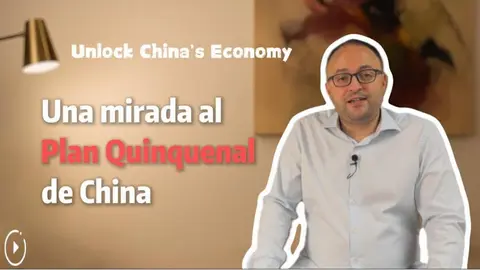
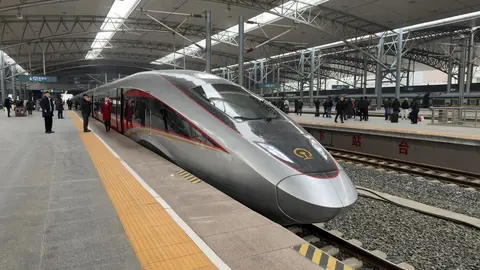
![Wang Tiemin[7139]](/asset/zoomcrop,480,270,center,center/media/elsemanaldelamancha/images/2025/10/30/2025103022085016603.jpg)
